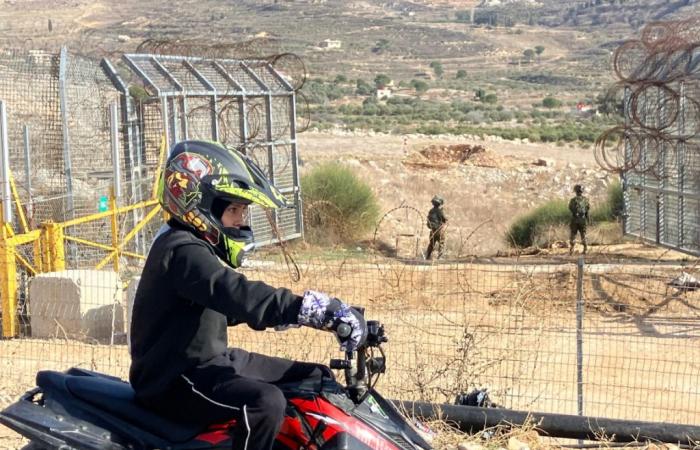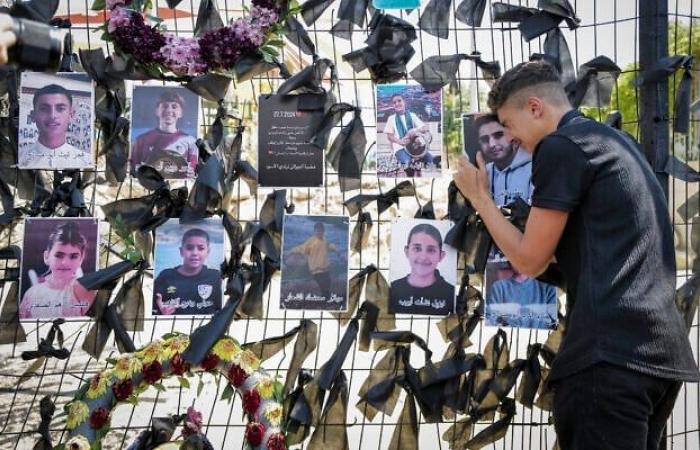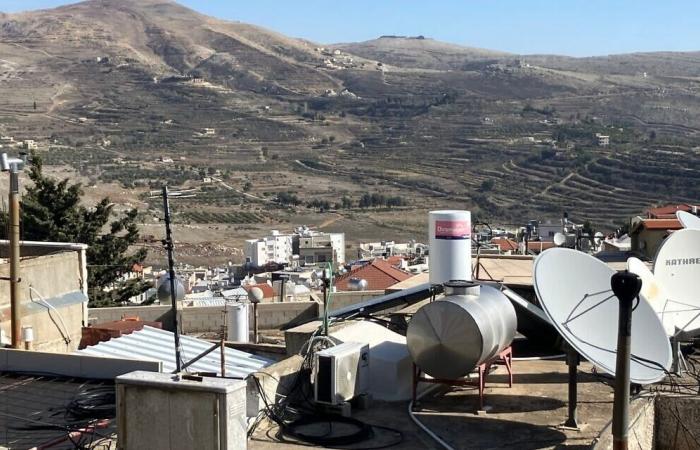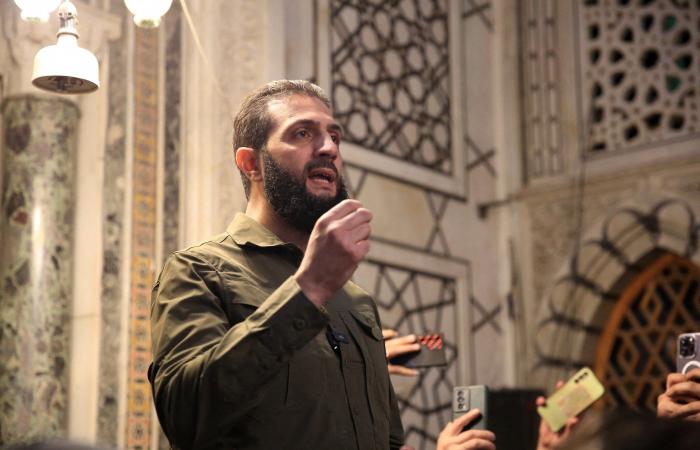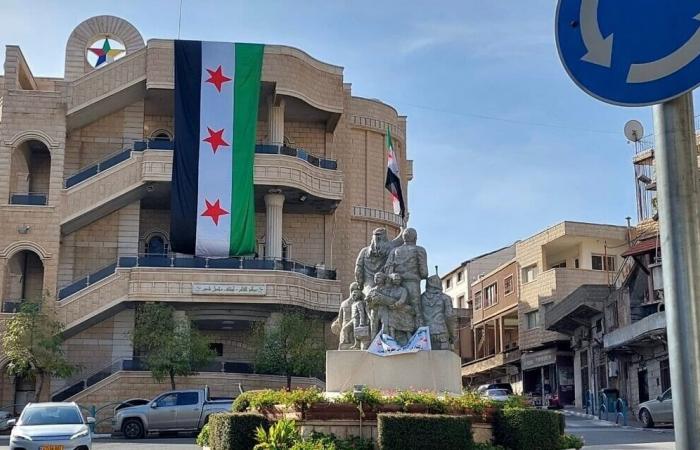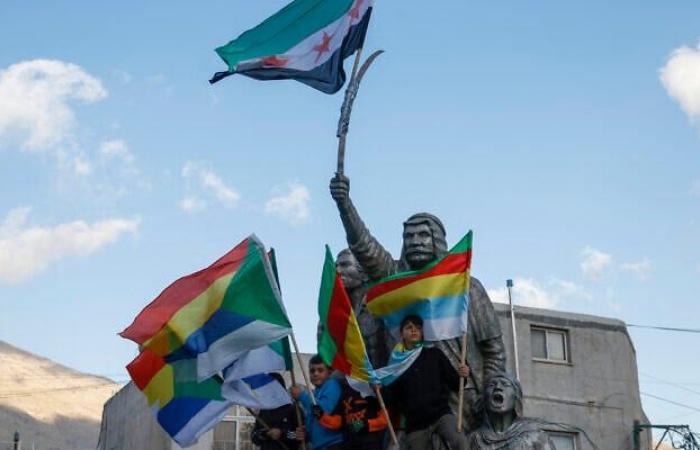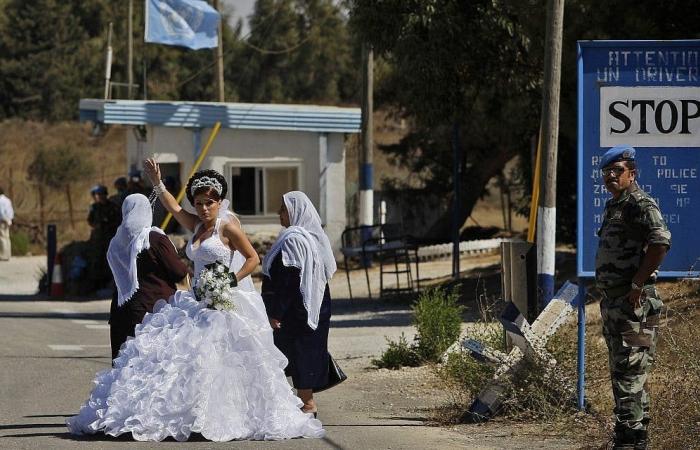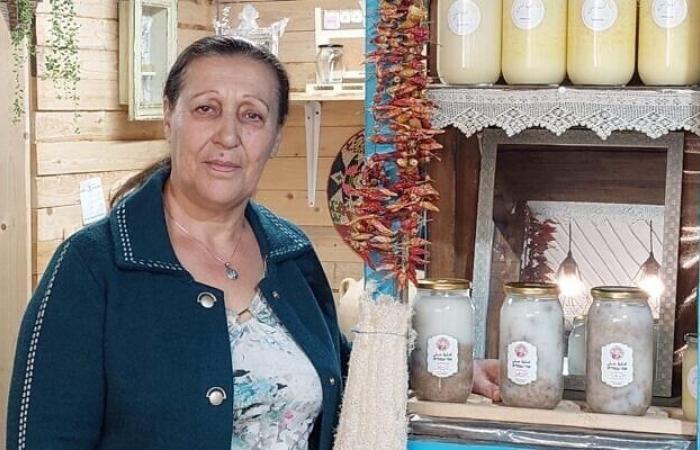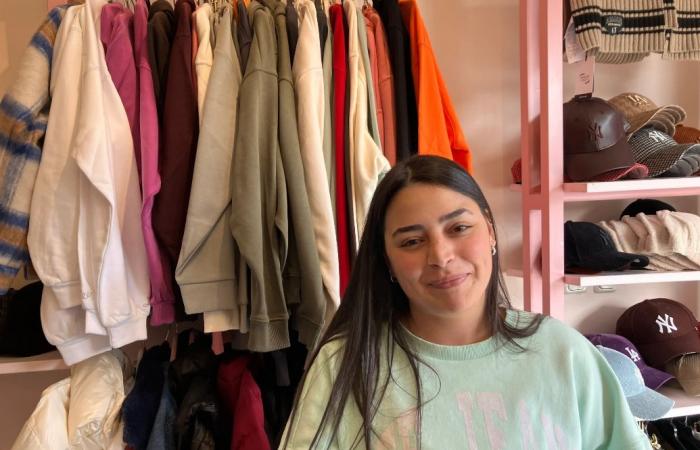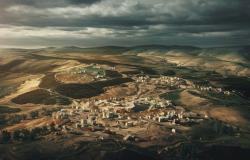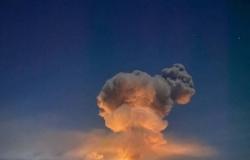MAJDAL SHAMS – The border fence in the valley bordering this Druze town in the Golan was once nicknamed the “screaming barrier,” a place where residents on the Israeli side and their relatives on the Syrian side called out loudly to each other to exchange news.
“It was before WhatsApp and Zoom,” jokes a resident who preferred to remain anonymous on Monday, the day after the fall of the regime of Syrian President Bashar al-Assad.
Across the world, Syrians took to the streets to celebrate the end of Assad’s dictatorship. The Druze of Majdal Shams also held parades in their town, located in the strategic Golan Heights, captured from Syria during the Six-Day War in 1967 and annexed in fact by Israel in 1981.
For this community, the joy over this sudden political change in Syria is doubly significant. For 57 years, families in the Golan Heights, which includes Majdal Shams and three other towns — Ein Qiniyye, Mas’ade and Buq’ata — have been separated from their loved ones living in Syria. A United Nations-controlled buffer zone divides the two sides, with only one crossing point between them.
Although Israel and Syria are still officially in a state of war, some 20,000 Druze residents of the Golan Heights now hold out hope that Syria’s new government will allow them to physically reconnect with their families.
“The fall of Assad is good news,” says Em Nasim Nabih, wearing the traditional Druze white veil, but leaving her face uncovered, unlike some more traditional women. She shares her enthusiasm as she passes by the border fence.
An IDF tank parks near the border fence between Israel and Syria in Majdal Shams, December 9, 2024. (Lindy Barnett)
The event appears to be a happy omen less than five months after a devastating attack by the Lebanese Shiite terrorist group Hezbollah on July 27, which claimed the lives of 12 children and teenagers playing on a soccer field in the center of the city.
This is the deadliest attack carried out by Hezbollah since the terrorist group began its strikes on northern Israel on October 8, 2023, a day after the pogrom carried out by the Palestinian terrorist group Hamas in the southern Israel, during which the group’s terrorists murdered more than 1,200 people and kidnapped 251 whom they took to the Gaza Strip.
Throughout the war against Hezbollah — which ended on November 27 with a 60-day ceasefire — the residents of Majdal Shams lived in a veritable war zone.
“Until this day, we have not known peace,” Nabih said.
People at the scene of a deadly Hezbollah missile attack on a soccer field in the Druze town of Majdal Shams in the Golan Heights, in which 12 children were killed, July 29, 2024. (Michael Giladi/Flash90)
Asked about her political views and loyalties, Nabih told a journalist from Times of Israel that she did not want to debate whether the Golan Heights “is Syrian or Israeli.”
She expressed a deep ancestral and spiritual attachment to this land, insisting that her ties are above all to the territory she inhabits, and not necessarily to the leaders who govern it.
“We did not leave our homes when the region moved from Syria to Israel,” she said. “We are here. »
Nabih also expressed hope that the new government “will listen to the needs of the people. »
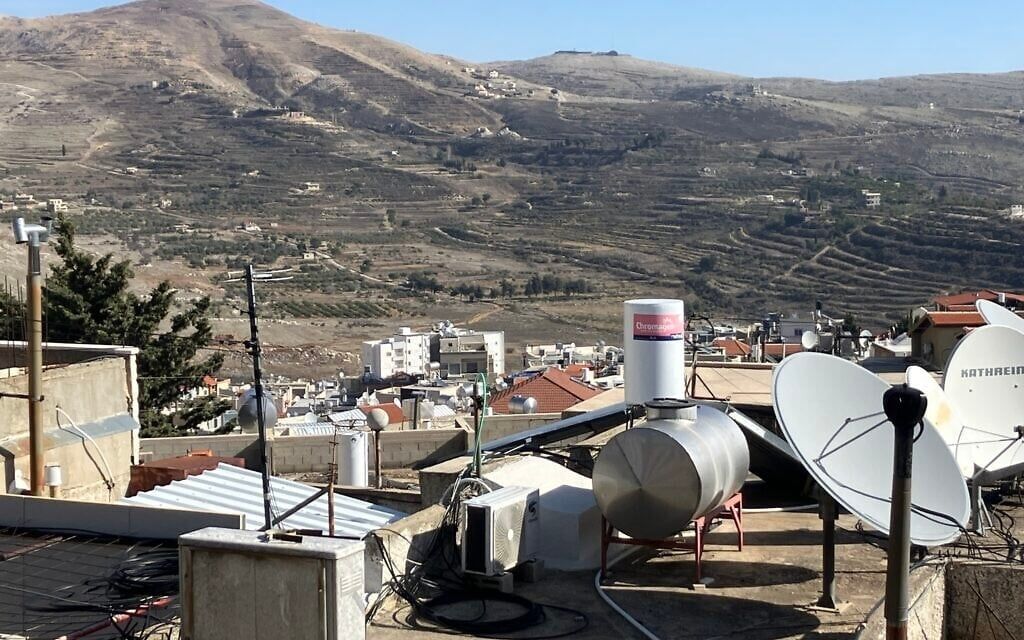
The roofs of Majdal Shams facing the valley and hills of Syria, December 9, 2024. (Diana Bletter/Times of Israel)
Abu Mohammed al-Jolani, leader of Hayat Tahrir al-Sham (HTS), launched a lightning offensive with other rebel groups, seizing government-controlled territory and capturing Damascus last Sunday. Al-Jolani, who now uses his real name, Ahmed al-Sharaa, tried to reassure minorities that he would not interfere in their affairs. In Aleppo, conquered by Islamist rebels a week earlier, no reprisals were reported.
Many Syrians, however, fear that HTS will impose strict Islamist rule, due to the group’s historical ties to al-Qaeda.
The Druze, a mystical branch that emerged from Shiite Islam in the 11th century and considered heretical by Sunni Islam, have often been the target of radical Islamist groups. Some residents expressed concern that al-Jolani was becoming an enemy of the Druze.
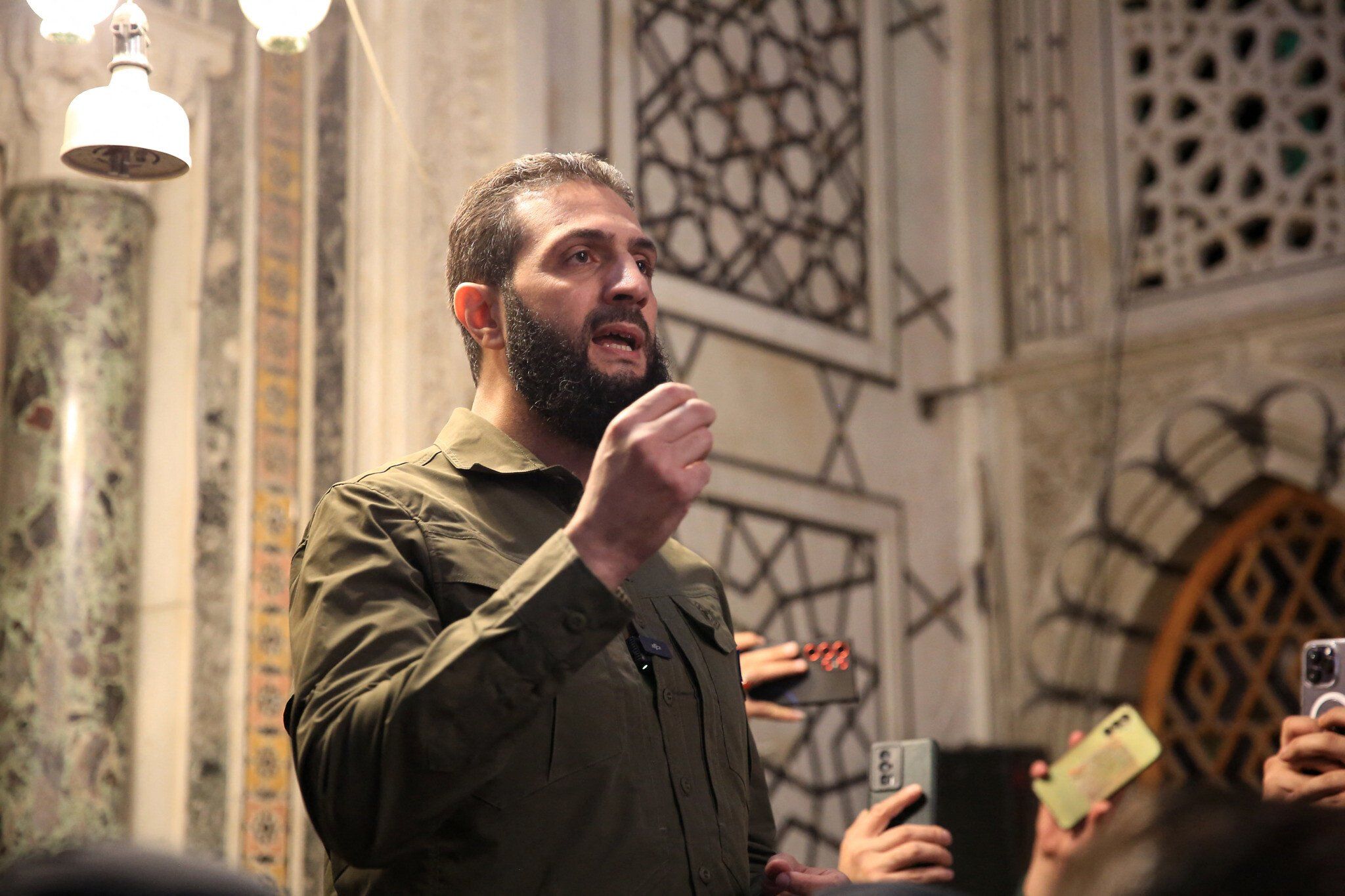
The leader of the Islamist group Hayat Tahrir al-Sham (HTS), the former branch of Al-Qaeda in Syria, which led a lightning offensive wresting Damascus from the control of the government of Syrian dictator Bashar el-Assad, Abu Mohammed al- Jolani, speaking to the crowd in the capital’s Umayyad mosque, December 8, 2024. (Credit: Aref Tammawi/AFP)
A cosmopolitan mountain village
The main street of Majdal Shams, perched on a steep slope of Mount Hermon — known in Arabic as Jabal al-Sheikh or “Sheikh’s Mountain” — retains the look of a mountain village while displaying a cosmopolitan character . Upscale cafes, clothing and cosmetics boutiques, and the smell of wood stoves blend harmoniously. Instead of the black flags of mourning flown after the Hezbollah attack, a large Syrian opposition flag now flies in the city’s main square.
This revival in Syria has instilled a sense of pride among Druze residents, for a country that had until then bred only despair since the start of the civil war in 2011. However, the fall of Assad has also revived questions complexes of identity, loyalty and belonging.
Some Druze in the Golan define themselves as “Golanese” and, unlike the 150,000 Druze who live in other parts of Israel, they do not hold Israeli citizenship and do not serve in the IDF. Elsewhere in Israel, the Druze accepted Israeli sovereignty after the establishment of the state in 1948 and generally identify themselves as Israelis. Men from these Druze communities serve in the IDF.
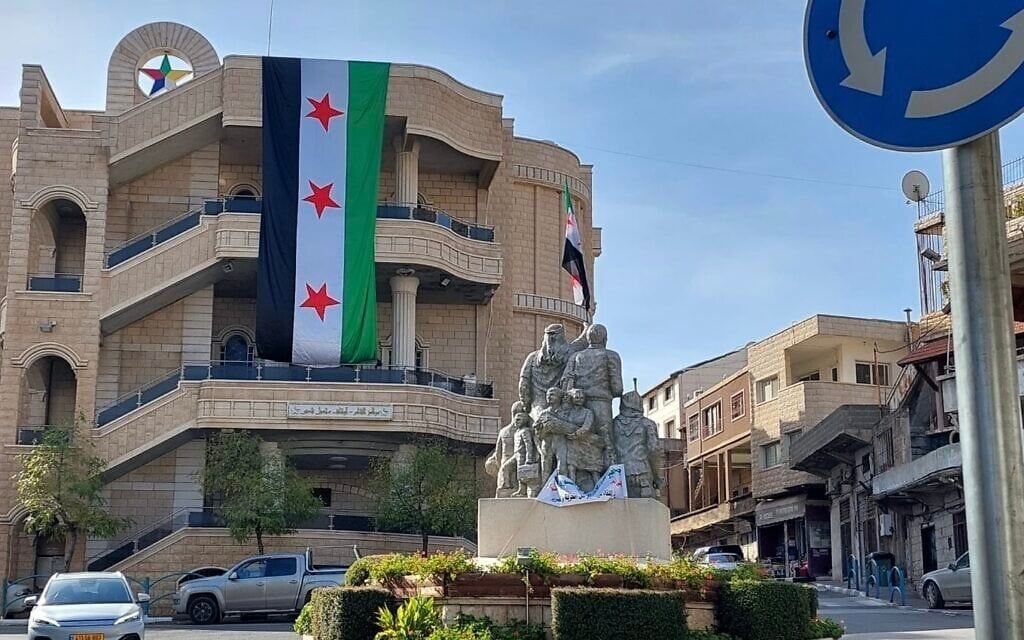
A large Syrian opposition flag hangs in the central square of Majdal Shams, December 9, 2024. (Lindy Barnett)
The “Golanese” maintain an ambivalent and ambiguous relationship with Israel, while maintaining a symbolic loyalty to Syria, a country that some of them have never visited, but which they nevertheless consider their “home”.
Among the crowd of residents and journalists gathered near the border fence was Wassim Safadi, a videographer born in Majdal Shams.
He observed the Israeli soldiers guarding the fence, facing the Syrian hills. Shortly after the fall of the Assad regime on Sunday, the IDF took control of the buffer zone in the northern Golan Heights without encountering resistance. The army said the operation was aimed solely at preventing possible attacks on Israel.
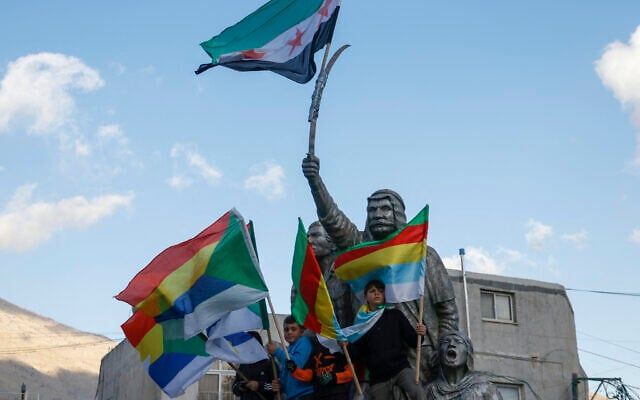
Residents of the Druze village of Majdal Shams in the Golan Heights celebrate after Islamist rebels said they captured the Syrian capital in a lightning offensive, driving out Syrian dictator Bashar al-Assad and ending five decades of Baath rule in Syria, December 8, 2024. (Credit: Jalaa Marey/ AFP)
Speaking on Assad’s fall, Safadi said he had watched videos of prisoners released in Syria.
“Only an individual with a criminal mind could do this to his own people,” he said. “He called himself the leader of the Syrian world, but we understand that he is just a coward. »
Safadi also expressed hope that he would be able to see his sister again, who left Majdal Shams to marry in Syria in 2008. He has not seen her since.
However, he also let his anger show: “We see how the Israeli authorities treat us,” he said. “We pay taxes here in Israel, but we are still treated like third-class citizens. We hope that one day we can live with equality here. »
In November, the Ministry of Education announced a new school curriculum intended to teach Druze history, culture, religion and society, including “the historical context between the Druze community and the State of Israel.”
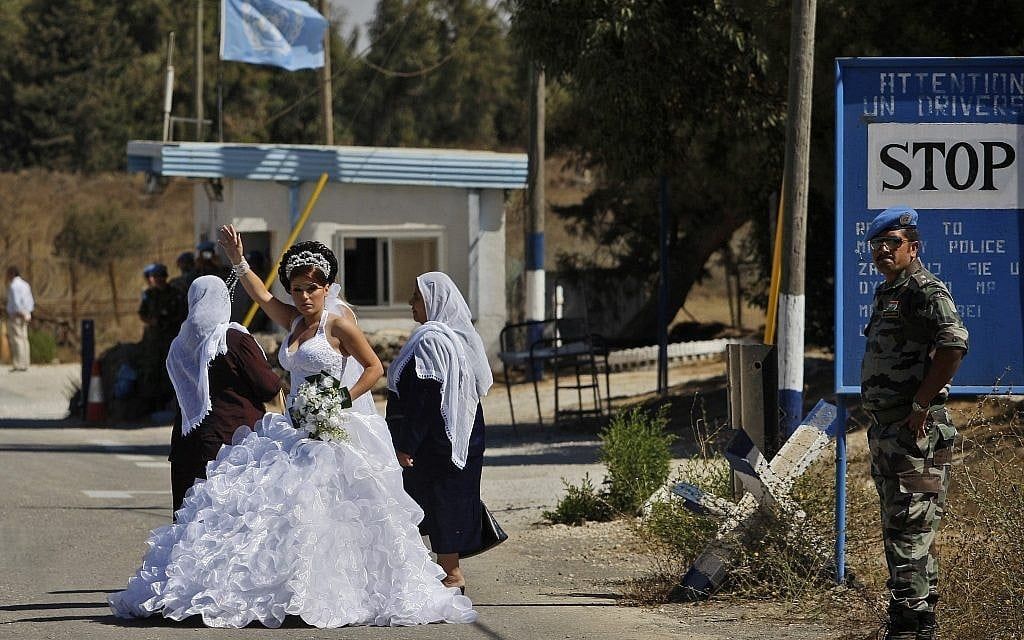
Israeli Druze bride Arin Safadi, 24, crosses the United Nations buffer zone to marry a Syrian Druze bridegroom at the Qouneitra crossing point in the Golan Heights, September 25, 2008. (Dan Balilty/AP )
An uncertain transition
Linda Hassan, a trader in Majdal Shams, sells brooms made from twigs, embroidered mats, and culinary specialties specific to the Golan Heights, such as mutton fat melted with pieces of meat.
“We are happy about what happened in Syria, but we are also afraid,” she confides. “When there is a transition, you never know what will come next. »
In Israel, the Golan Druze are considered permanent residents. They benefit from access to health care, education and other social services, as well as freedom of movement within Israeli territory. Hassan explains that one of the reasons the Golan Druze do not serve in the Israeli army is that “they might find themselves fighting their own cousins.”
“We live well here, but our hearts are in Syria,” she adds.
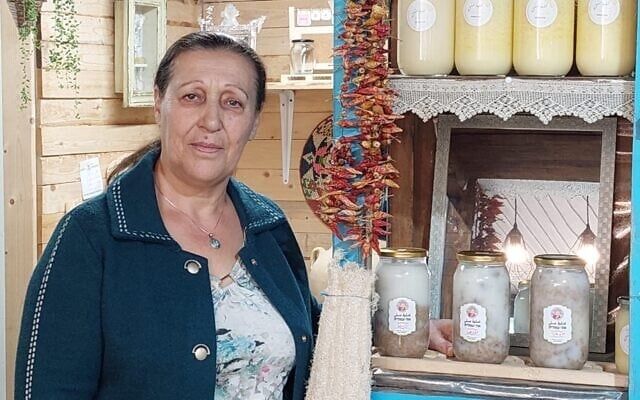
Linda Hassan next to her homemade products in Majdal Shams, December 9, 2024. (Credit: Lindy Barnett)
In 2022, the number of Golan Druze applying for Israeli citizenship increased due to the Syrian Civil War. However, most prefer to maintain their permanent residency status, fearing that accepting Israeli sovereignty would endanger their loved ones living across the border in Syria.
According to Colonel (retired) Sarit Zehavi, founder of the Alma Center, an Israeli research institute specializing in security issues in the north of the country, the Druze community also fears being accused of treason by the Damascus authorities if the region was to be returned to Syria.
On the main street of Majdal Shams, Kinana Ibrahim, 22, stood in a clothing store, surrounded by designer jeans, [vestes] fashionable bombers and baseball caps.
“It’s very complicated. Nobody knows what will happen,” said Ibrahim, 22.
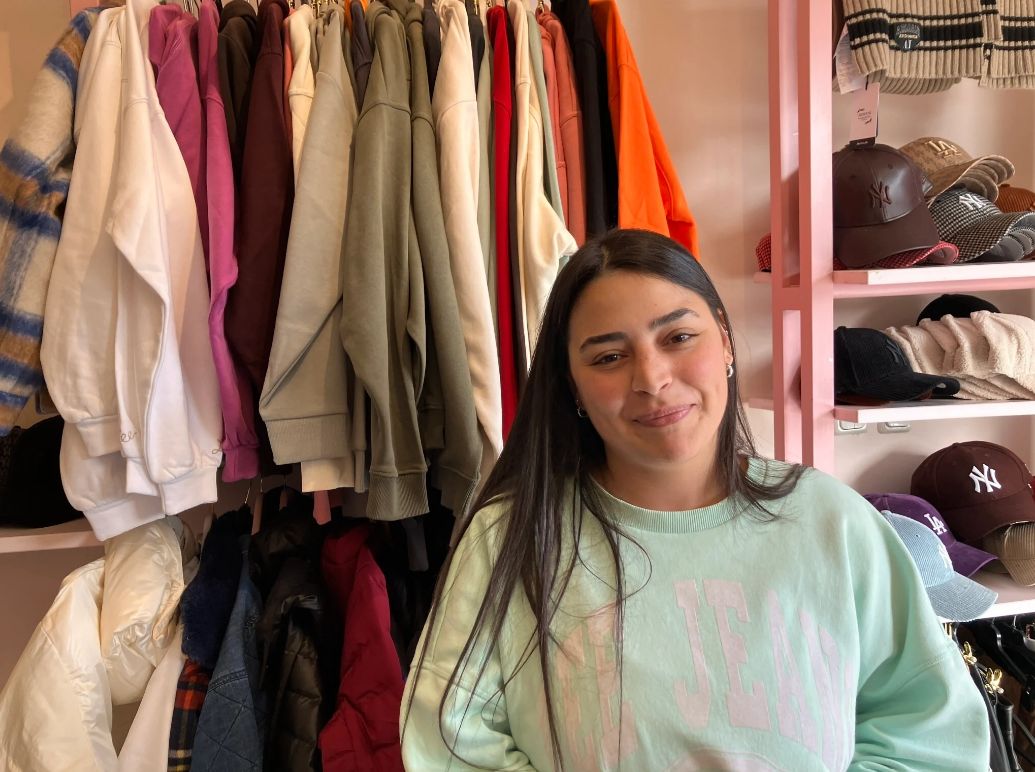
Kinana Ibrahim in the clothing store where she works in Majdal Shams, December 9, 2024. (Diana Bletter/Times of Israel)
Although she was born in Israel, she refuses to apply for an Israeli passport. She dreams of visiting Syria, a country she has often heard about.
“It’s beautiful there, but life is hard,” she explains. “Many people dream of visiting Syria. »
She adds that some village residents hope that Majdal Shams will one day be returned to Syria, a subject others prefer to avoid.
“I was born in Israel, but I am Syrian in my heart,” she says.

